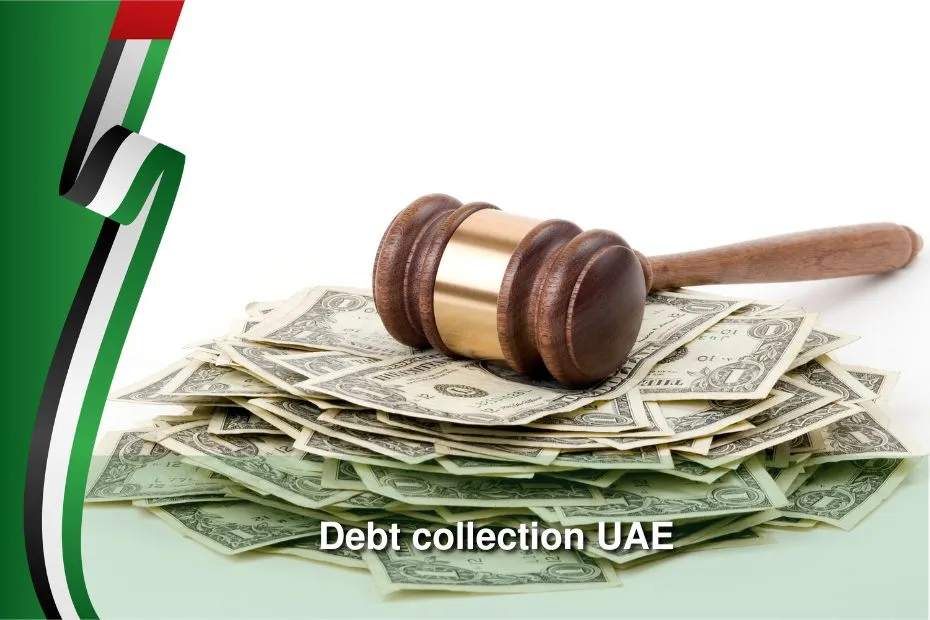Effective debt recovery is essential in today’s business and personal finance landscape.
Civil debt collection in the UAE is governed by unified federal laws, providing clarity and efficiency for creditors and debtors.
This article offers an overview of how debt collection works in the UAE in 2025 and the legal services our firm offers to support clients in this area.
Contact our expert lawyers & legal consultants in UAE. Click the WhatsApp icon below.
Table of Contents
Debt Collection in the UAE
Debt collection in the UAE is based on civil law, not criminal prosecution. The 2025 legal framework allows creditors to recover money while respecting debtor rights. Below is a practical guide.
Legal Foundations
Debt obligations arise from laws such as:
- Civil Transactions Law: Covers loans, contracts, and obligations. Personal loans cannot include interest.
- Commercial Transactions Law: Allows agreed interest on commercial debts.
- Civil Procedure Law: Governs court claims, payment orders, and enforcement.
- Evidence Law: Defines what documents prove a debt.
- Mediation and Conciliation Law: Encourages out-of-court settlements.
Fast-Track Recovery: Payment Order
This is a simplified legal process for clear, uncontested debts. Key requirements are:
- A written proof of debt (e.g., contract or invoice).
- A demand notice (served to the debtor at least 5 days before going to court).
- Filing with the court of jurisdiction.
If approved, a writ of debt is issued within three business days. The debtor may object within 15 days. If not, the order becomes final and enforceable.
Standard Court Case (Civil Lawsuit)
If the debt is disputed or lacks documentation, the case proceeds as a normal lawsuit:
- File Statement of Claim – With full details and evidence.
- Serve the Debtor – Using official, digital, or personal channels.
- Court Hearings – Parties exchange written submissions and evidence.
- Judgment Issued – If proven, the court awards payment and interest.
The debtor can appeal, but enforcement may proceed unless a stay is granted.
Enforcement of Judgments
Winning a case is only the beginning. Execution involves:
- Bank Freezes.
- Asset Seizure and Auction – Includes property, vehicles, or business stock.
- Salary Garnishment.
- Commercial License Attachment.
- Travel Bans – To prevent absconding debtors.
- Detention – In extreme cases of bad faith and the capacity to pay.
Execution is supervised by an Execution Judge. Some steps can now be outsourced to licensed private enforcement firms.
Amicable Settlements and Mediation
The UAE strongly promotes out-of-court solutions. Under the 2023 Mediation Law:
- Court-approved settlements are enforceable like judgments.
- Mediation can happen before or during court cases.
- Agreements are confidential and easier to enforce.
Many debt matters settle at this stage, especially with a formal legal notice from the creditor’s lawyer.
Browse related topics:
- Read about Bounced Checks in the UAE.
- Learn about Bankruptcy Law in the UAE and how to prove debtor solvency and the absence of bankruptcy or insolvency.
- Know What Debtor Solvency in UAE Legislation means and read about the Personal Insolvency Law in UAE.
- Read about Debt Collection in Dubai.
Legal Services Related to Debts in the UAE
Our legal consultants in Dubai specialize in UAE debt collection and offer end-to-end legal support strictly within this area. Our services include:
Pre-Litigation Services
Before filing a case, we help clients take strategic steps to recover debts through legal notices and negotiations. Our pre-litigation services include:
- Legal Demand Notices – Drafting and serving valid notices to debtors.
- Debt Analysis – Reviewing contracts and documents to confirm enforceability.
- Negotiation & Mediation – Representing clients during amicable settlement discussions.
Litigation Support
If informal recovery fails, we provide full legal representation throughout court proceedings. Our litigation services include:
- Payment Order Applications – Fast-track filing for uncontested claims.
- Civil Lawsuits – Full legal representation before UAE civil courts.
- Evidence Compilation – Preparing court-compliant evidence files.
Judgment Enforcement
Once a judgment is issued, we act swiftly to enforce it through all available legal means. Our enforcement services include:
- Execution Applications – Filing to freeze bank accounts or seize assets.
- Travel Ban Requests – Filing for urgent precautionary bans on absconding debtors.
- Auction Procedures – Coordinating with courts and private agents.
- Debt Settlement Monitoring – Ensuring judgments are enforced and paid.
Post-Judgment Assistance
Even after enforcement begins, we support clients with ongoing legal actions and follow-up. Our post-judgment services include:
- Appeal Handling – Filing or defending appeals in execution or grievance matters.
- Installment Agreements – Applying for court-supervised payment plans.
- Credit Bureau Reporting – Ensuring judgments are reflected in debtor records.
FAQs about Unpaid Debt in the UAE
Debt collection in the UAE is supported by strong, modern laws.
Whether you need a quick court order for an unpaid invoice or full litigation support for a disputed claim, the legal process is clear and enforceable.
Our law firm is fully equipped to handle debt matters under UAE federal law, from pre-litigation steps to enforcement and execution.
Contact us for practical, professional assistance in legally and efficiently recovering your debt in the UAE.
Contact our law firm in UAE for expert help. Click the Whatsapp icon below.
Omar Al Mansoori is an Emirati legal advisor and researcher with over 10 years of experience in civil, commercial, and corporate law in the UAE. He focuses on simplifying complex legal topics and ensuring that every article published aligns with the latest national legislation and official regulations.
